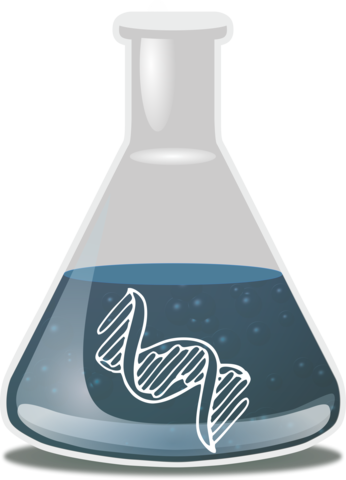Summary
Part of the Genome in a Bottle Consortium hosted by NIST dedicated to comprehensive characterization of benchmark cancer genomes. The whole genome characterization in this project complements NIST's current DNA copy number Reference Materials for HER2, as well as EGFR and MET. Sign up for General GIAB and Analysis Team email lists.
Updates February 2025:
NEW! HG008-T Draft Clonal Somatic Structural Variant Benchmark available on the GIAB FTP site. README describes the PASS/ALL benchmark files and how to use them with truvari for benchmarking:
- Preprint describing the current HG008 Dataset, "Development and extensive sequencing of a broadly-consented Genome in a Bottle matched tumor-normal pair", is available at https://doi.org/10.1101/2024.09.18.613544.
- Tumor cell line (HG008-T) received at NIST, and NIST is exploring differences between passages and developing single cell clones of HG008-T.
- Initial sequencing of a second tumor cell line (HG009-T) has started. This cell line is from a PDAC liver metastasis. Future plans include developing a matched normal HG009 cell line.
Interested in collaborating with us? Contact justin.zook [at] nist.gov (Justin Zook).
Click here for the GIAB FAQ
Description

Goals:
This project is an extension of the Genome in a Bottle Consortium to develop the technical infrastructure (reference standards, reference methods, and reference data) to enable translation of cancer genome sequencing to clinical practice and innovations in technologies. The priority of GIAB is comprehensive characterization of human genomes for use in benchmarking, including analytical validation and technology development, optimization, and demonstration.
Reference Samples:
NIST has been collaborating with Andrew Liss at MGH to develop new tumor cell lines with paired normal samples that are explicitly consented for fully public dissemination of genomic data and cell lines. The first tumor cell line (HG008-T) is from a pancreatic ductal adenocarcinoma, for which we have paired normal pancreatic (HG008-N-P) and duodenal tissue (HG008-N-D) for sequencing, but no normal cell line. We currently are collecting extensive genomic data described below, and are working towards making these cell lines available in public repositories. We plan to have another pancreatic tumor cell line with a paired normal cell line in the near future, but these are still under development. We also welcome additional collaborations for tumor and normal cell line pairs that are explicitly consented for fully public dissemination of genomic data and cell lines.
Benchmark (or "High-confidence") Variant Calls and Regions:
We are working with the GIAB community to develop benchmark variants for the tumor and normal samples, using assembly-based and mapping-based approaches. We welcome collaborations in this new project.
Whole Genome Scale Data:
Starting in the Fall 2023, we began collecting a diverse set of whole genome scale measurements for the GIAB HG008 samples (Figure 1). We are making the data public, without embargo, as we collect them. The data being collected is described in Table 1. We welcome collaborations to analyze these data.

Figure 1 HG008 whole genome scale measurement technologies
Data Access:
These contributed data can be accessed through the public GIAB FTP as it becomes available. Data can also be browsed through 42basepairs (https://42basepairs.com/browse/web/giab/data_somatic/HG008/), which allows for high level exploration and preview of the sequencing data.
For navigating the available data, we provide the Cancer GIAB Data Manifest, which allows for exploration of the tumor and normal data currently available on the FTP. If you are interested in exploring the manifest, you can create a filter view by 1) selecting the entire spreadsheet 2) Data → filter views → create new filter view. Please note tumor data collected from year 1 (2022) is from a prior passage of tumor cells and is emphasized in RED. Most of the tumor data being collected is from a single batch of tumor cells known as 0823p23. Please take these passages into consideration when choosing tumor datasets you are interested in exploring.
Table 1 Available datasets for GIAB HG008 tumor and normal samples
HG008 datasets that are available on the GIAB FTP have been QC'd and are noted by estimated coverage and read lengths. The Dataset ID corresponds to those in the Cancer GIAB Data Manifest. Coverage estimates reflect the expected coverage of diploid regions of the normal and tumor samples, assuming no whole genome duplication has occurred. Note that a majority of tumor data comes from a large batch of cells (batch 0823p23), but some data are from other passages of the cell line at NIST and MGH as noted in the table. This table is updated as data are received, last update 2025-01-23.
Research Opportunities:
NIST-NRC Postdoctoral Fellowship: 2-year fellowship at NIST, U.S. citizens only, ~$75,000 salary plus benefits, relocation expenses included, application deadlines are Feb. 1 and Aug. 1, requires 10 page research proposal. Contact Justin Zook if you are interested in writing a proposal on a genomics research project. We have opportunities posted for metrology in Cancer Genomics, Diploid Assembly, Epigenomics and Transcriptomics, Biological Data Science/Machine Learning, and Precision Medicine.

